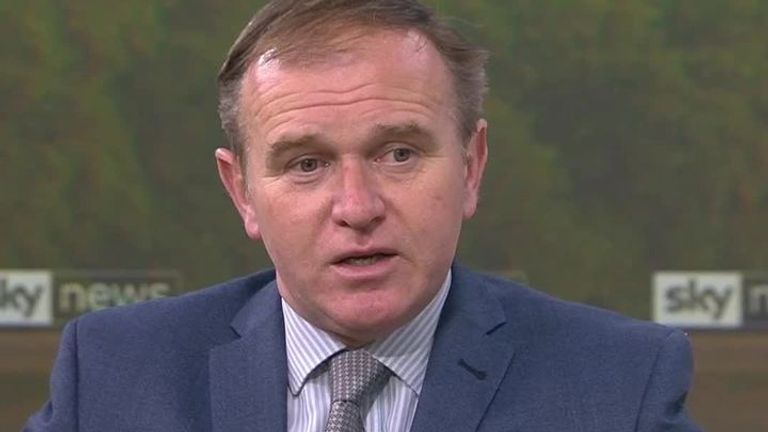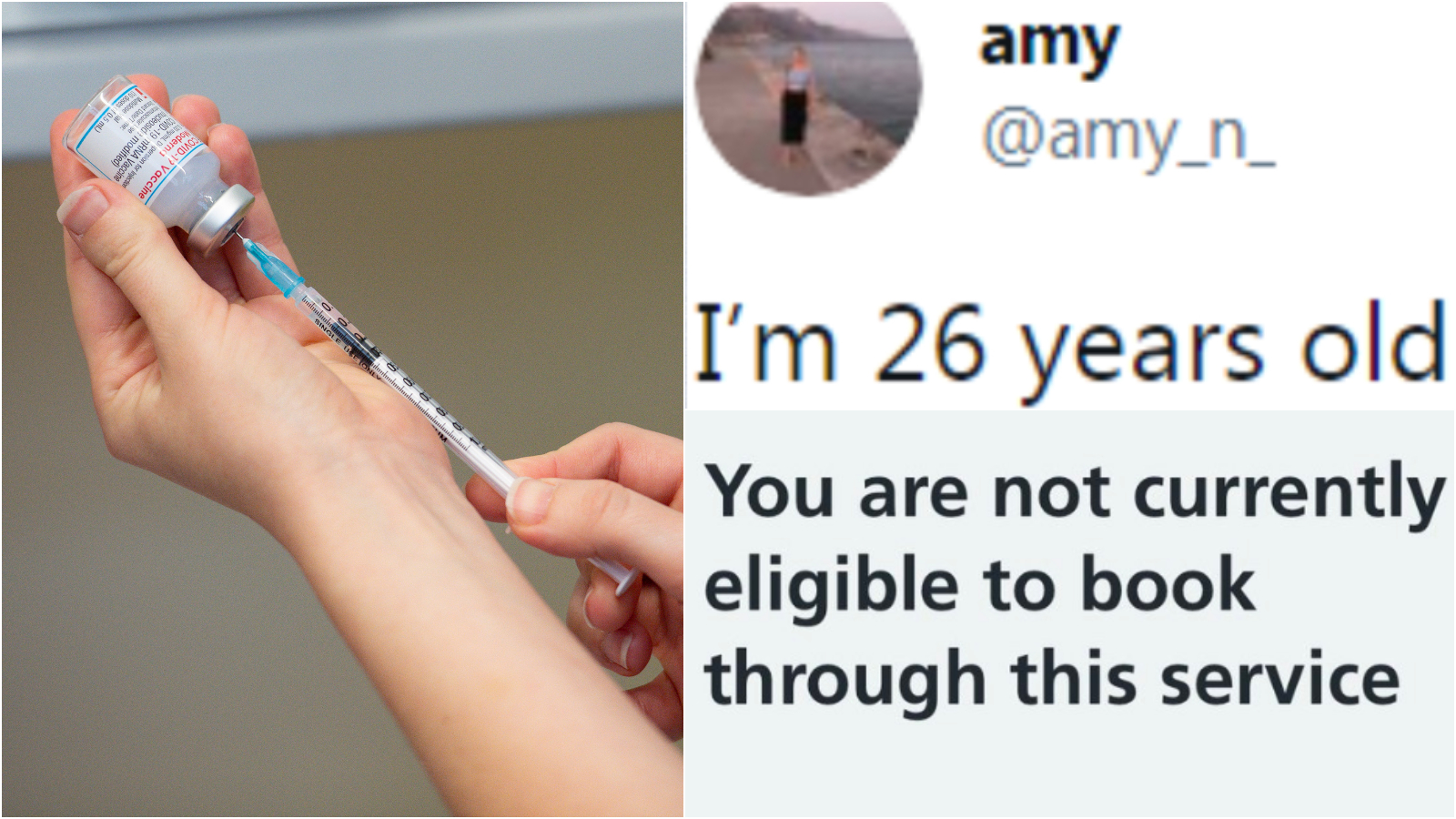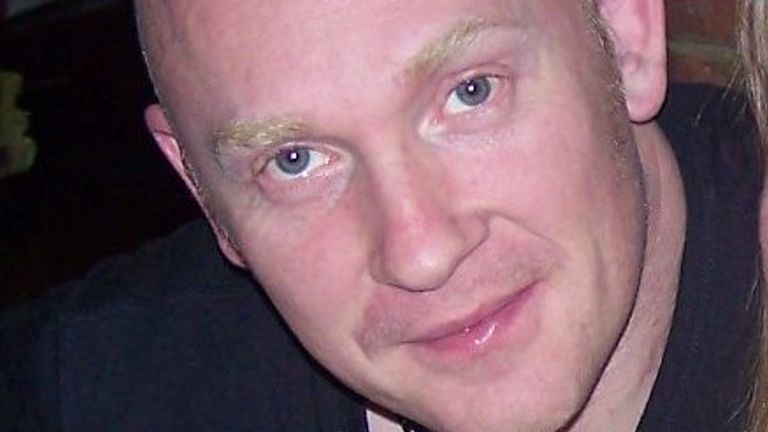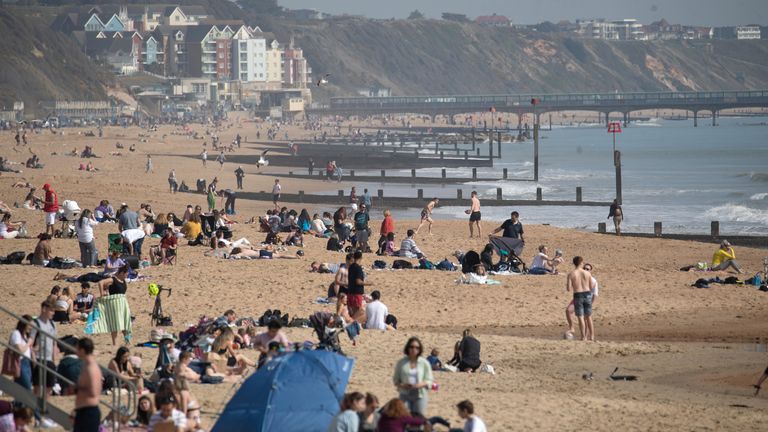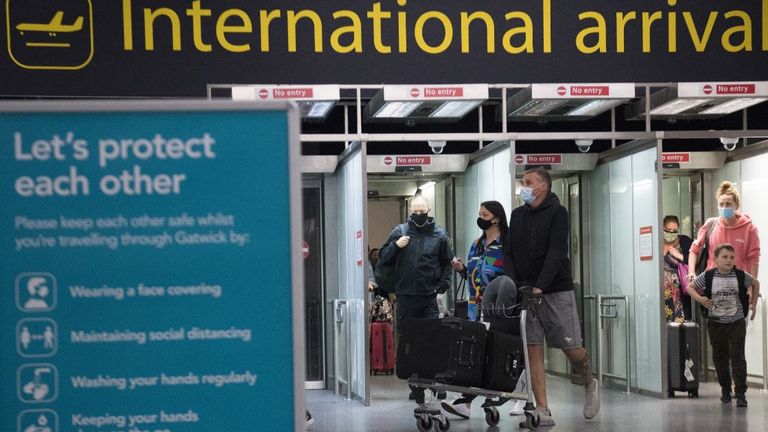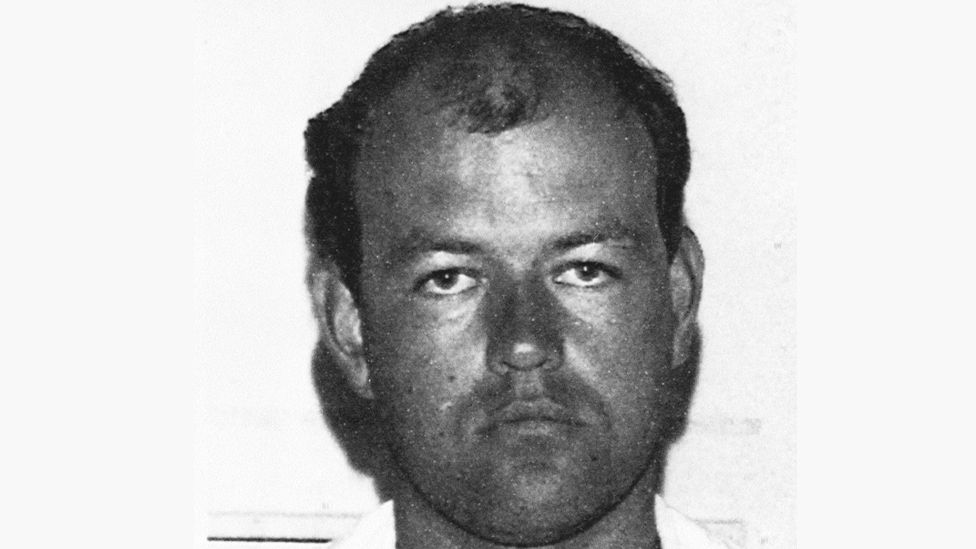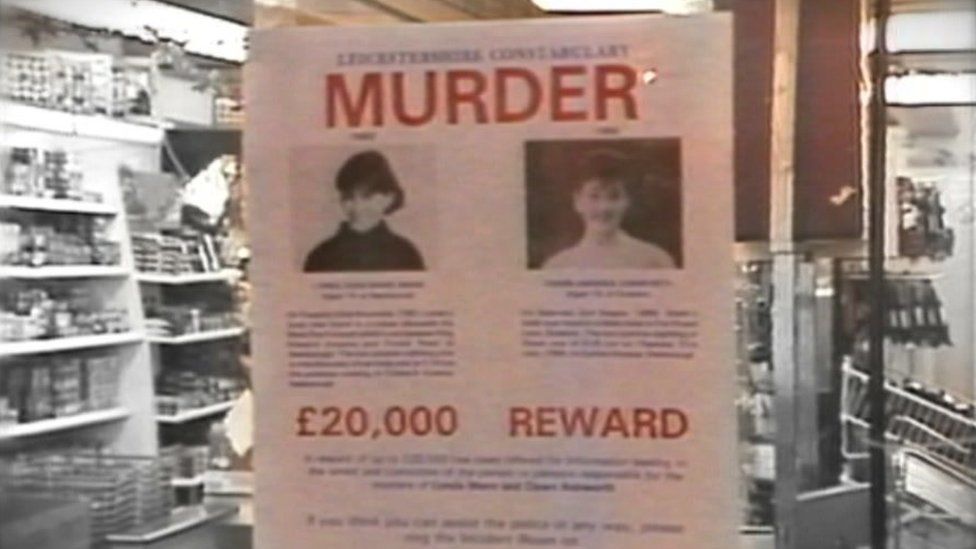
The electoral map of England is being redrawn to reflect population shifts and the government's aim that all Parliamentary constituencies contain roughly the same number of electors.
Under the Boundary Commission for England's proposals, England will have 10 additional House of Commons seats overall once the changes have come into effect. Scotland loses two and Wales loses eight.
There's quite a lot of variation between different regions of England. Broadly, the South is getting more seats whilst the North will have fewer.
Proposed new boundaries for Scotland, Wales and Northern Ireland will be published in due course.
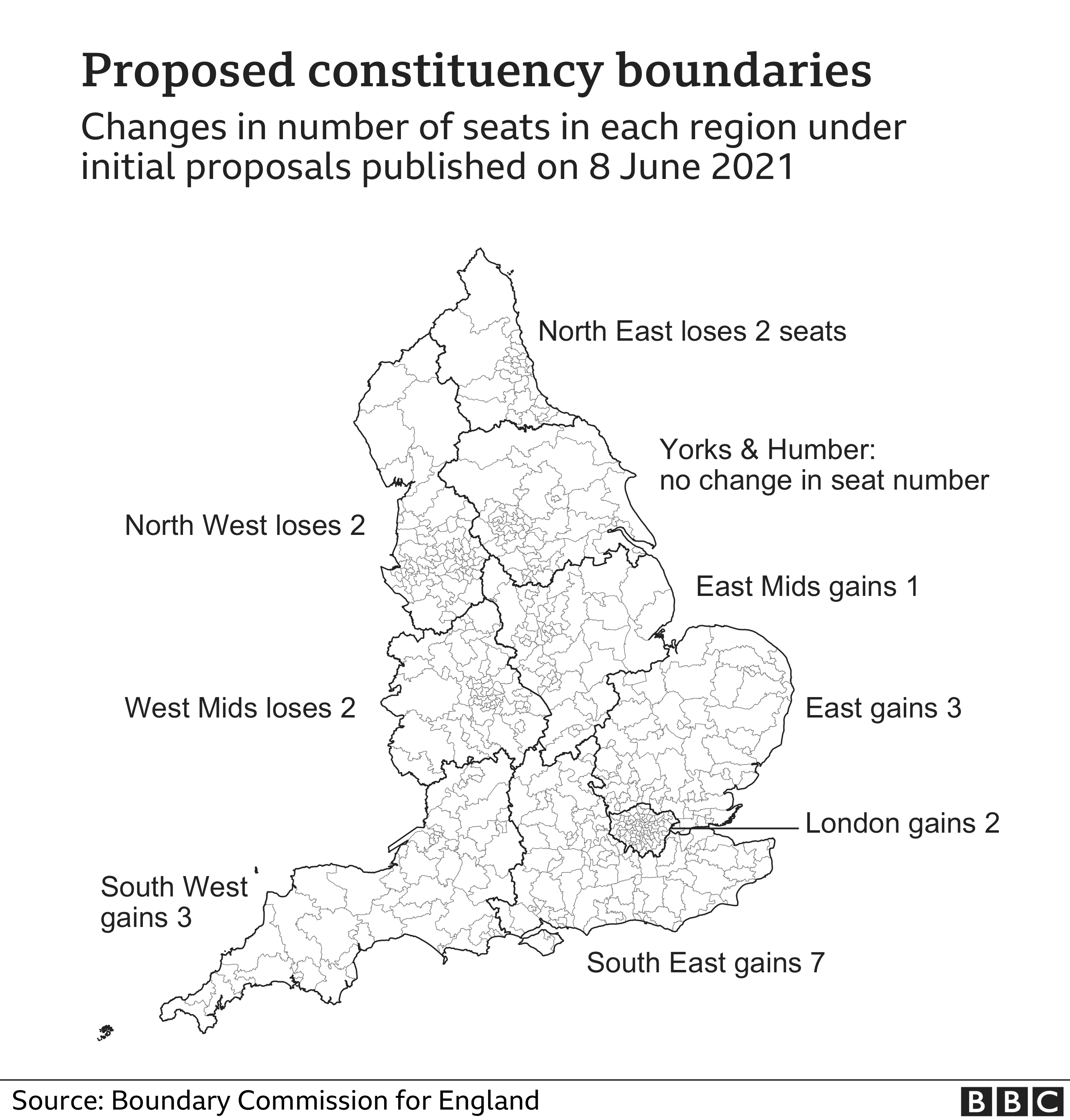
The re-jig reflects changes in population figures - the whole point of the review is to make constituencies more equal in terms of the number of voters they have.
But it doesn't sit entirely comfortably with the government's "levelling-up" agenda, its commitment to spread wealth, power and opportunity to previously neglected parts of the country.

How will MP seats change across the country?
- Scotland: 57 (-2)
- Wales: 32 (-8)
- Northern Ireland: 18 (no change)
- North West: 73 (-2)
- North East: 27 (-2)
- Yorkshire and the Humber: 54 (no change)
- West Midlands: 57 (-2)
- East Midlands: 47 (+1)
- East of England: 61 (+3)
- South West: 58 (+3)
- South East: 91 (+7)
- London: 75 (+2)

'Red wall' seats
On the whole, areas that have done well economically in recent years will have more MPs - and so more of a say in the House of Commons - whereas the areas that have done less well will have fewer MPs.
So, for example, Buckinghamshire, including Milton Keynes, currently has seven constituencies. Under the proposals it would have eight.
And neighbouring Oxfordshire would go from six constituencies to seven.
On the other hand, the area covered by County Durham, South Tyneside and Sunderland sees its allocation fall from 11 seats to 10.
Often the changes are more complicated than this. You have to look more closely to see where seats are being added or reduced.
For example, Wirral currently covers four constituencies: Birkenhead, Wallasey, Wirral South and Wirral West.
Under the proposals, it would only have three complete constituencies.
Wirral South disappears with most of its voters going into enlarged Birkenhead and Wirral West seats.
Two wards are left over and they would go into a new Ellesmere Port constituency, which would predominantly be in Cheshire.
The detail is complicated but the overall picture is clear.
Better-off areas which have seen population growth will gain constituencies at the expense of areas that have fared less well.
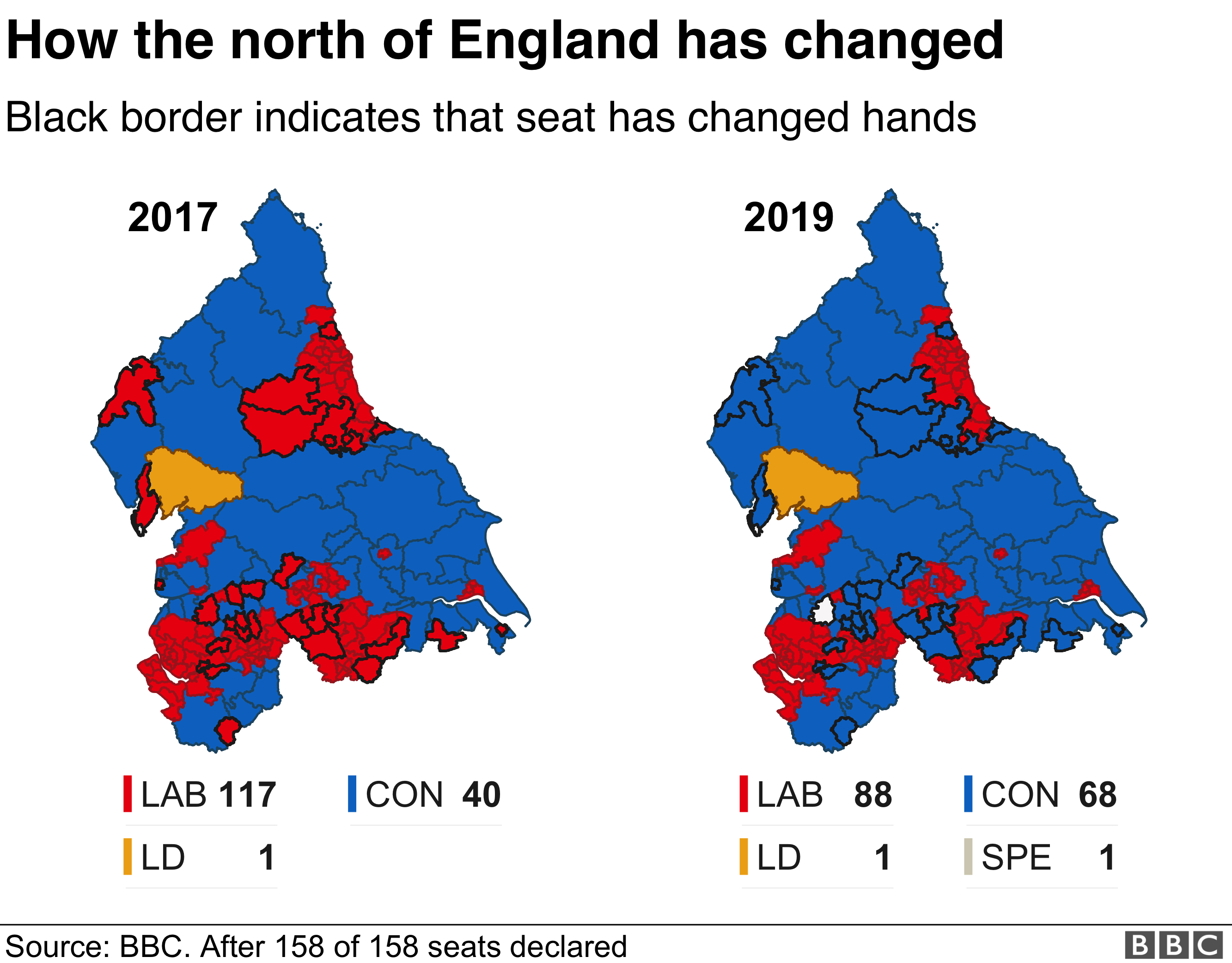
Who benefits?
Whenever boundary changes are proposed there are always attempts to estimate who are the winners and losers politically.
The idea is to try to say who would have won each of the new constituencies had they been in place at the time of the last general election.
The BBC and other broadcasters use these "notional" results to calculate gains and losses when the next general election is held.
It takes a long time to come up with precise estimates but we can say pretty confidently that overall the changes will benefit the Conservatives at the expense of Labour.
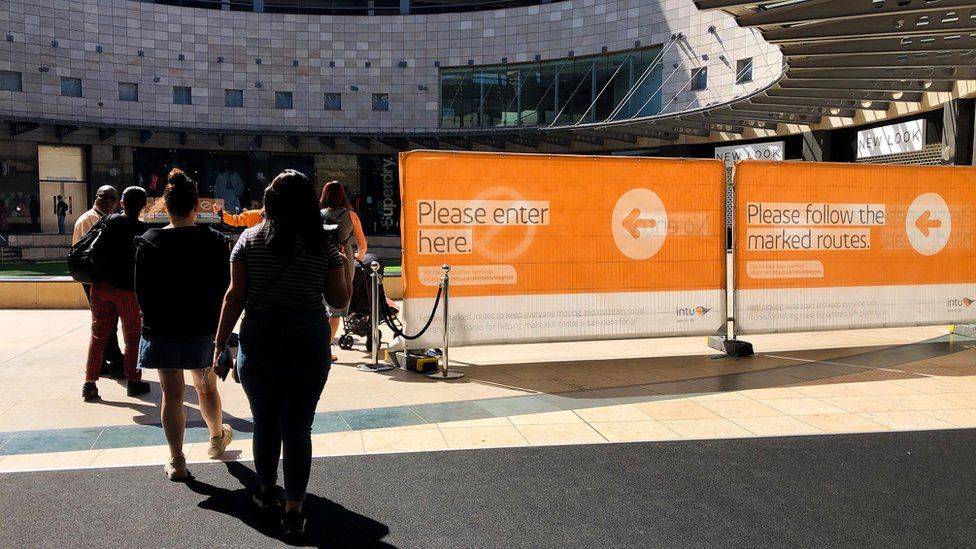
In spite of their gains at the 2019 general election in so-called "red wall" seats, where Labour has traditionally dominated, the Conservatives still get most of their electoral support in the South of England.
However the boundaries are drawn, more seats in the East of England, South East and South West probably means more Conservative seats.
So if we look at Oxfordshire again, the Conservatives currently hold all of the seats except the two focused on the city of Oxford - Oxford East and Oxford West & Abingdon.
Under the proposals those two constituencies remain albeit in modified forms. The additional seat, Bicester, would almost certainly have been won by the Conservatives had it been in place at the last election.
Really, it's a bit of an oversimplification to say that Bicester is the additional seat.
The proposals are for all of the constituencies in the county to be modified - but Bicester is the one with the new name (Wantage is also renamed as Didcot & Wantage but that's just recognising Didcot as the constituency's biggest town).
And looking again at Wirral, all four of the old seats were won by Labour. So the reduction to three constituencies with two wards left over isn't good for them.
Complicated changes
Having said that, it's likely that gains made by the Conservatives at the 2019 general election will mean the advantage they can expect from the boundary changes is reduced.
Prior to 2019 the 11 constituencies covered by County Durham, South Tyneside and Sunderland were all held by Labour - so the loss of a seat would certainly have come at their expense.
Four of the constituencies are now Conservative, though, and some of the proposed changes are complicated so it's harder to say who loses out.
Similarly, the number of seats is being reduced in parts of the West Midlands where the Conservatives made gains so the changes will not all be to their advantage.
The Boundary Commission wants members of the public to have their say on the proposals. There's an initial consultation period running until 2 August so all of the preliminary ideas could change.
The overall regional figures won't change though. The reweighting of the constituency map towards the south of England is a consequence of population shifts.
https://news.google.com/__i/rss/rd/articles/CBMiL2h0dHBzOi8vd3d3LmJiYy5jby51ay9uZXdzL3VrLXBvbGl0aWNzLTU3NDAwOTAx0gEzaHR0cHM6Ly93d3cuYmJjLmNvLnVrL25ld3MvdWstcG9saXRpY3MtNTc0MDA5MDEuYW1w?oc=5
2021-06-08 14:05:30Z
52781652785328


